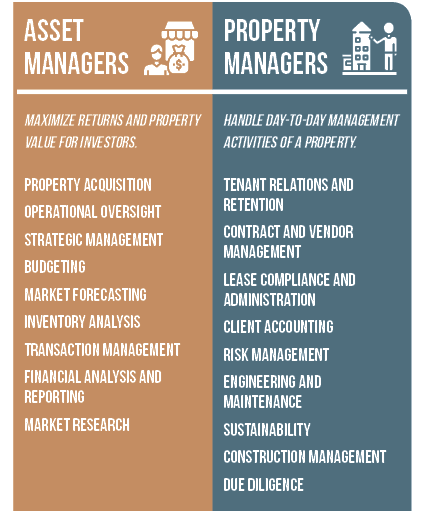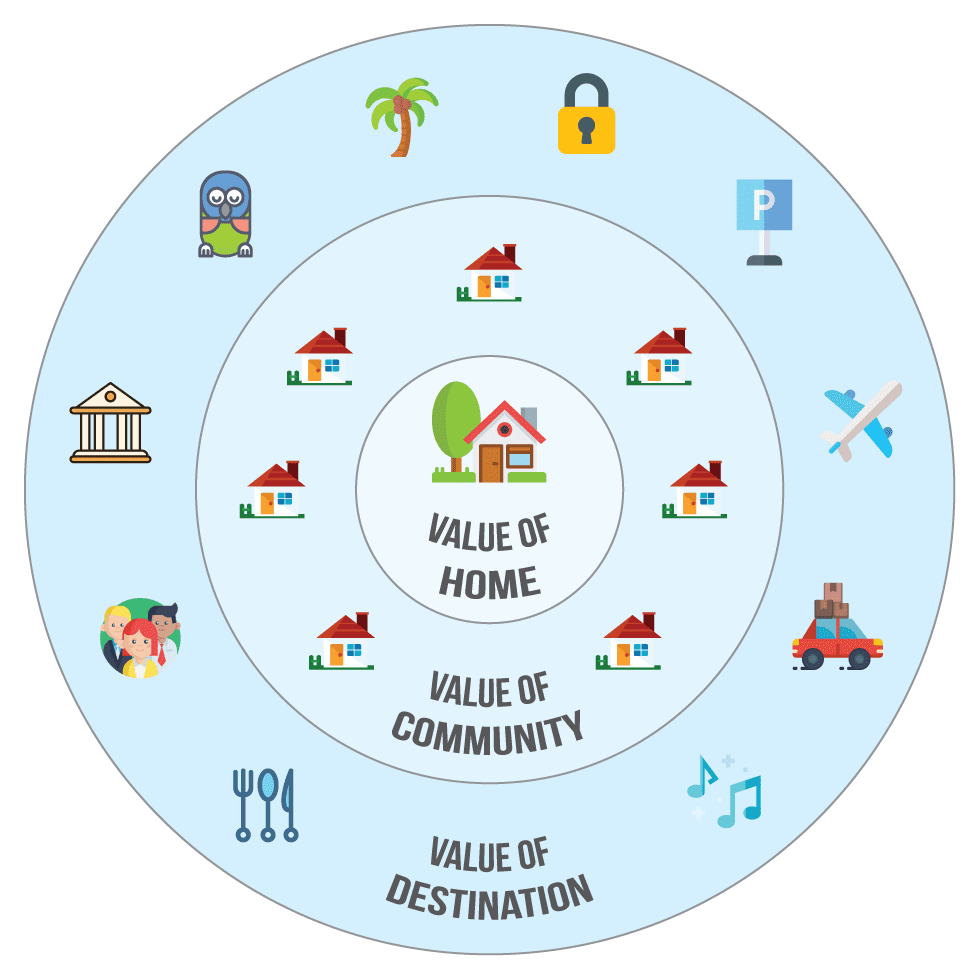Are You an Asset Manager, a Property Manager, or Both?
We often think of real estate asset managers as managing commercial real estate portfolios. However, the true definition of asset management is not a profession but rather a process that refers to managing investments on behalf of others with the dual objective of appreciation of the client’s assets over time while mitigating risk.
The functions performed by real estate asset managers are looking increasingly similar to the services provided by professional second-home property managers (PMs), especially those with real estate offerings and a deep understanding of market and economic dynamics.
“In the past decade, the property management profession has made some remarkable developments,” says Michael T. Lanning, CPM, senior vice president at Cushman and Wakefield. “Property managers today do more than manage tenant relationships. They take a holistic approach to managing an asset, including the operations, financials, and tenant engagement. A number of external factors have influenced this change, and as a result there is a greater alignment of the property and asset management disciplines than ever before.”
Asset Management versus Property Management

Asset management professionals do not readily admit it, but the lines that divide asset and property management are blurring, and there is an undefined, detailed description of a true real estate asset manager.
This void is creating an opportunity for real estate-oriented vacation rental managers to market the asset management services they are already providing to second-home owners.
Second-Home Investor Profile
While investor profiles differ among second-home owners, they are generally motivated by the following:
- Realizing an appreciation in the value of the home as an asset
- Maximizing short-term cash flow through rental income and cost management
- Managing risk
- Maintaining the property to enjoy as a vacation home for personal use
Professional PMs are well-versed in maximizing short-term cash flow, managing risks associated with vacation rentals, and servicing owner stays, so let’s look at several of the functions of increasing the value of the home.
Increasing the Value of a Vacation Property
When examining an asset manager’s role in increasing the value of the home, according to Sean Ross, founder of Free Lances Ltd. in his article “The Role of an Asset Manager in the Real Estate Market”: “Asset managers tend to specialize in particular types of property, regions or operations. A very large role of the asset manager consists of market research, data analysis, and revenue forecasting.”
PMs who view the vacation rental property as an investment are performing asset management analysis, forecasting, and reporting, and they are proactively working to increase the value of the home. They are able to set themselves apart from management companies that are solely focused on maximizing rental income in the home.
Looking solely at increasing the selling price of the home, there are many PMs who are already proactively working to:
- Increase the popularity of the destination among buyers most likely to invest in area homes
- Increase the value of the neighborhood or complex community within the destination
- Increase the value of the home within the community

Destination Appreciation
Leisure destinations go in and out of favor with travelers. Asset-management minded PMs are proactive in finding ways to ensure real estate values and guest activity steadily grow in the destination.
Here are some examples of initiatives that engaged PMs support:
- Improved airports and more direct flights
- Sustainable and smart growth, development, and city planning
- Year-round activities
- Government policies and regulations that are pro-real estate, pro-business, pro-guest, and pro-destination
- Traffic solutions that meet the needs of the destination at its peak visitor times
- Public transportation, available taxis, and ride-sharing
- Safety and security
- Multigenerational appeal
- Optimal mix of accommodation types and full-time versus part-time visitors
- Shopping and dining development, acquisition, and retention
- Events, conventions, festivals, and groups in shoulder seasons
Pro Tip: Communicate what you are doing to ensure destination appreciation to owners, and find ways to engage them in your programs and activities to promote the relationship.
Neighborhood and Complex Community Appreciation
In resort destinations, many vacation homes are located in neighborhoods and complexes which improve the value of these communities as a key factor in increasing the value of the home. Providing association management services is one way that PMs work to grow the value of neighborhoods and condominium communities. By managing the association, PMs have an increased ability to control and improve:
- Financial management
- On-site amenities
- Security and safety
- Common areas
Increasing the Value of the Individual Home
The objective in increasing the value of the home is to create a property value that is at the top of the market in a community that is also at the top of the market in a destination that is at the top of the market among competitive destinations.
Having a strong rental history is important, but implementing systems that provide professional financial reporting and property history can increase the speed of a sale. In addition, using comparative data tools and reporting that show how the property is performing in relation to the market can also help a buyer complete a quick transaction. Investing in a process to provide fast, professional, easy-to-read buyer packages, complete with reports, forecasts, and area trends, demonstrates to buyers that the PM is a savvy asset manager and is an effective tool in persuading a new buyer to allow the management company to continue to manage the property after a sale.
Moreover, property care is expected to make up a much larger part of the PM’s role in the months to come, and technology products are being developed to help facilitate proactive home care and preventative maintenance. Offering design services and uniform, upgraded kitchen packages are also ways to impress buyers (and guests). Smart home automation can help in security and managing costs, and having a process to vet and manage guests and provide 24/7 response is also a service that improves the value of the home.
An enormous opportunity exists for real estate–minded property management companies that view vacation homes as investments, are functioning as asset managers, and are concerned with both increasing the long-term value of the property and maximizing short-term income to differentiate themselves from the competition. Second-home owners/investors are seeking—and are willing to pay a premium for—these services.


